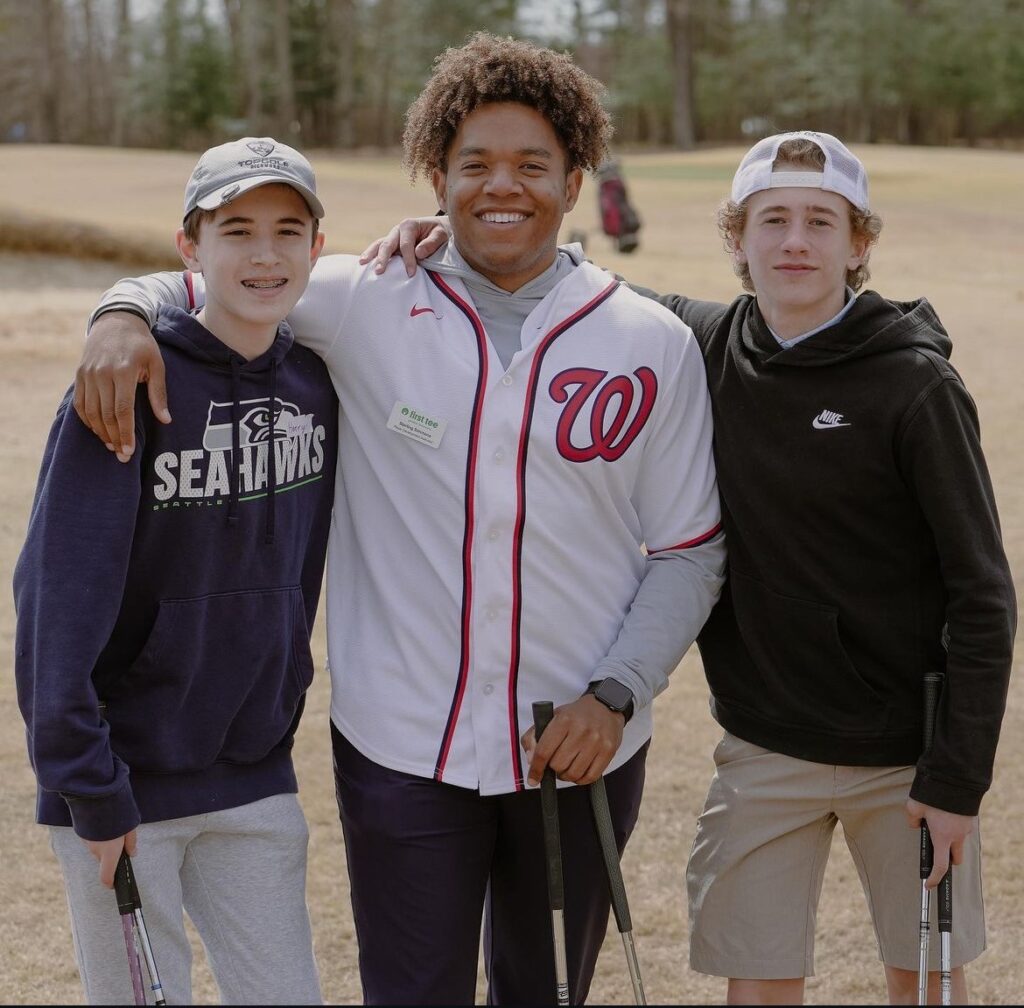By Kristin Westberg, Senior Director of Curriculum and Education
“People don’t care how much you know until they know how much you care.” ― Theodore Roosevelt
At First Tee, coaching involves far more than just teaching golf skills and life skills in a class; it’s about cultivating relationships that foster growth, build confidence and demonstrate resilience. But how can coaches create a foundation of trust that cultivates legitimate relationships with participants? Empowering Youth, one of the First Tee Coach Building Blocks, focuses on this aspect of development and is one key to building relationships that create impact.
Trust is the foundation
Eighty-three percent of parents wish their child had more access to trustworthy coaches. Trust forms the bedrock of any enduring coach-athlete relationship. It’s the glue that holds everything together, facilitates effective communication, skill development and overall progress. All First Tee coaches are background checked and formally trained to connect with participants, whether they’re passionate golfers or just trying something new. They prioritize building trust early on to establish a strong foundation that can lead to a lasting connection.
Positive role modeling
Ninety-two percent of parents say they hope their child has a coach who they would consider a role model. First Tee coaches serve as mentors and role models for participants. They lead by example and demonstrate the values they expect from participants. Kids are far more likely to do what you do, rather than what you say, and coaches recognize this as an opportunity to positively model both golf skills and life skills that can be applied on and off the course. Coaches are committed to Building Game Changers, work hard to embody the Key Commitments, set a positive example of pursuing goals, grow through challenge, collaborate with others, build positive self-identity and use good judgment. These behaviors help to build trust and foster connections with participants of all ages.
Continuous improvement
Fifty-three percent of parents say having a trustworthy sports coach or mentor would increase their likelihood to commit long-term to the activity. First Tee coaches understand that building meaningful connections with participants is an ongoing process, and the First Tee curriculum exists to support them through that. First Tee offers a variety of eLearning courses and supplemental resources, as well as HQ led trainings to deepen their knowledge and develop new skills, such as understanding the stages of youth development or tips and tricks for tackling skill disparities. These practices improve the learning environment in a class and create opportunities to develop relationships and strengthen connections with participants.
Ninety percent of parents believe that coaches are the unsung heroes of youth development. A coach’s influence extends beyond the course and long after the round ends. Genuine connection matters when building the coach-participant relationship and even more when building game changers. At First Tee, we recognize that when participants know you care, they’ll care what you know and that’s when true learning and growth happens.
The statistics used throughout this story are from a new study between First Tee and Harris Poll. Visit the Character Gap research to learn more.
Q&A with a Coach
Sterling Simmons III is a First Tee alumnus and the player development instructor at First Tee – Greater Richmond. In that role, Sterling leads First Tee – Greater Richmond’s Player Development Academy, First Tee matches and oversees the organizations PGA Jr. League teams.

How did you get involved with First Tee?
My father took me to the First Tee Greater Richmond driving range when I was younger, and I met my first golf coach Craig Wood. I’ve stayed involved ever since.
Why do you continue to coach?
I enjoy being able to be a part of the development process for our participants, both on and off the golf course.
What have you learned from coaching at First Tee?
First Tee has taught me that each participant is unique in their own way and as a coach, you have to be able to adapt how you teach to match the participant.
What do you think new First Tee students should know?
The course of life and the golf course are very similar. You will be presented with obstacles and challenges along the way, but the ability to navigate and overcome adversity will help you in the future on both of these “courses.”
What do you think new/inquiring coaches should know?
You don’t have to be a great golfer to make an impact on a participant’s life.

